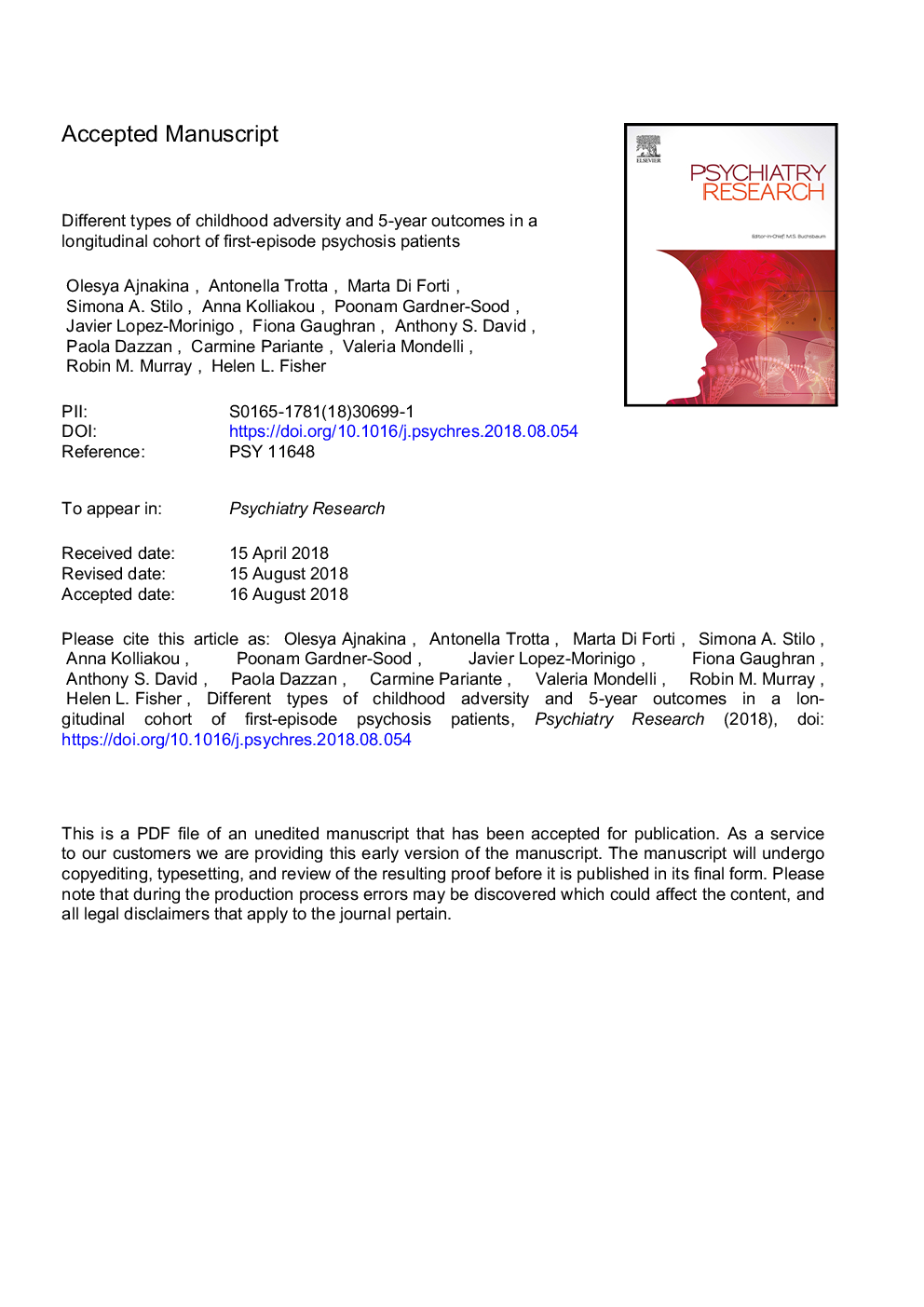| Article ID | Journal | Published Year | Pages | File Type |
|---|---|---|---|---|
| 8947259 | Psychiatry Research | 2018 | 31 Pages |
Abstract
Little is known about the impact of different forms of childhood adversity on outcomes in first-episode psychosis (FEP) patients beyond the first year of treatment. We investigated associations between different types of childhood adversity and outcomes of FEP patients over the 5 years following their first contact with mental health services for psychosis. 237 FEP cases aged 18-65 years were followed on average for 5 years after first presentation to psychiatric services in South London, UK. Childhood adversity prior to 17 years of age was assessed at baseline using the Childhood Experience of Care and Abuse Questionnaire (CECA.Q). The results showed that exposure to at least one type of childhood adversity was significantly associated with a lower likelihood of achieving symptomatic remission, longer inpatient stays, and compulsory admission over the 5-year follow-up. There was no evidence though of a dose-response effect. Some specificity was evident. Childhood parental separation was associated with significantly greater likelihood of non-compliance with antipsychotic medications, compulsory admission, and substance dependence. Institutional care was significantly associated with longer total length of inpatient stays; and parental death was significantly associated with compulsory admissions. Clinicians should screen FEP patients for childhood adversity and tailor interventions accordingly to improve outcomes.
Related Topics
Life Sciences
Neuroscience
Biological Psychiatry
Authors
Olesya Ajnakina, Antonella Trotta, Marta Di Forti, Simona A. Stilo, Anna Kolliakou, Poonam Gardner-Sood, Javier Lopez-Morinigo, Fiona Gaughran, Anthony S. David, Paola Dazzan, Carmine Pariante, Valeria Mondelli, Robin M. Murray, Helen L. Fisher,
